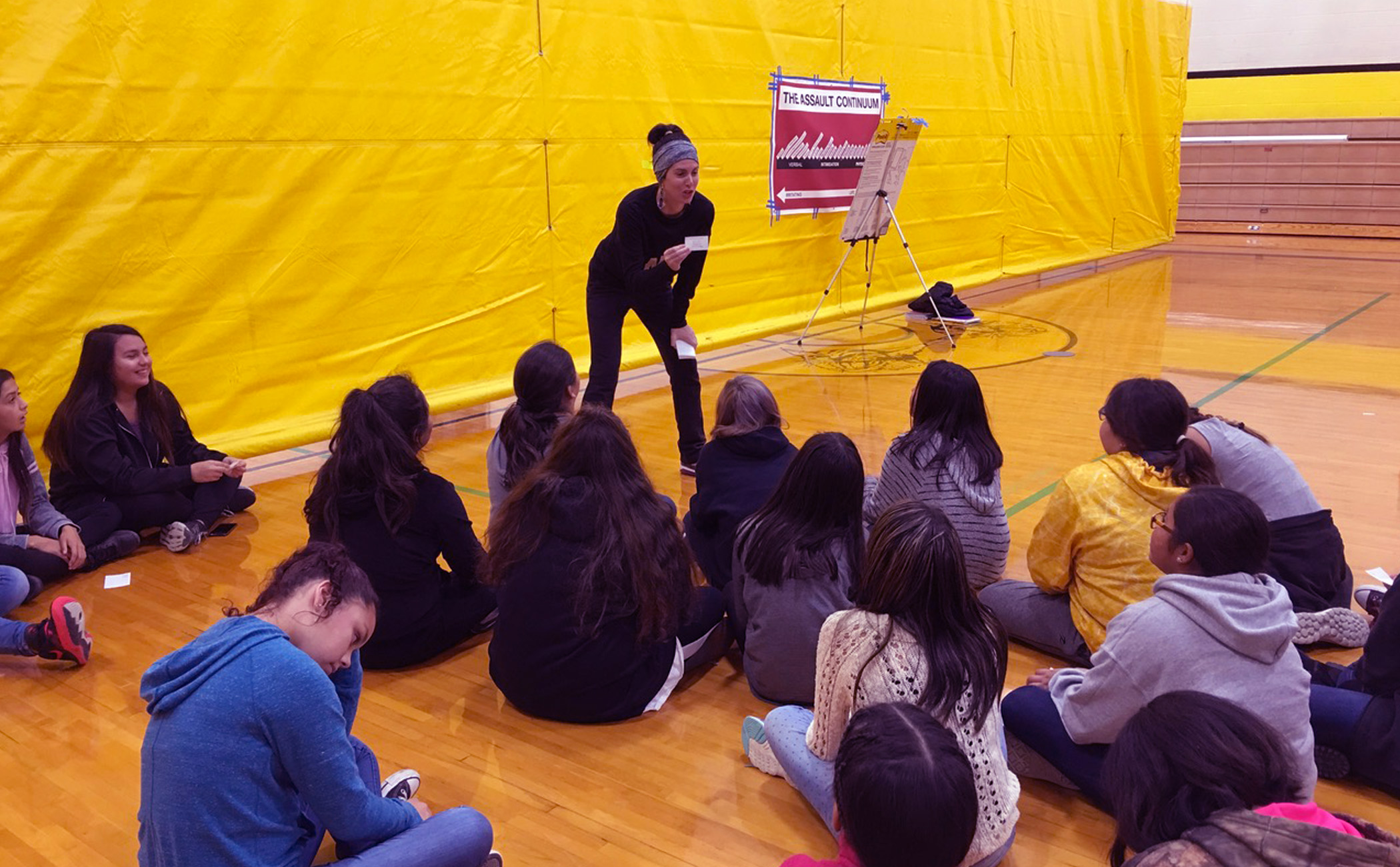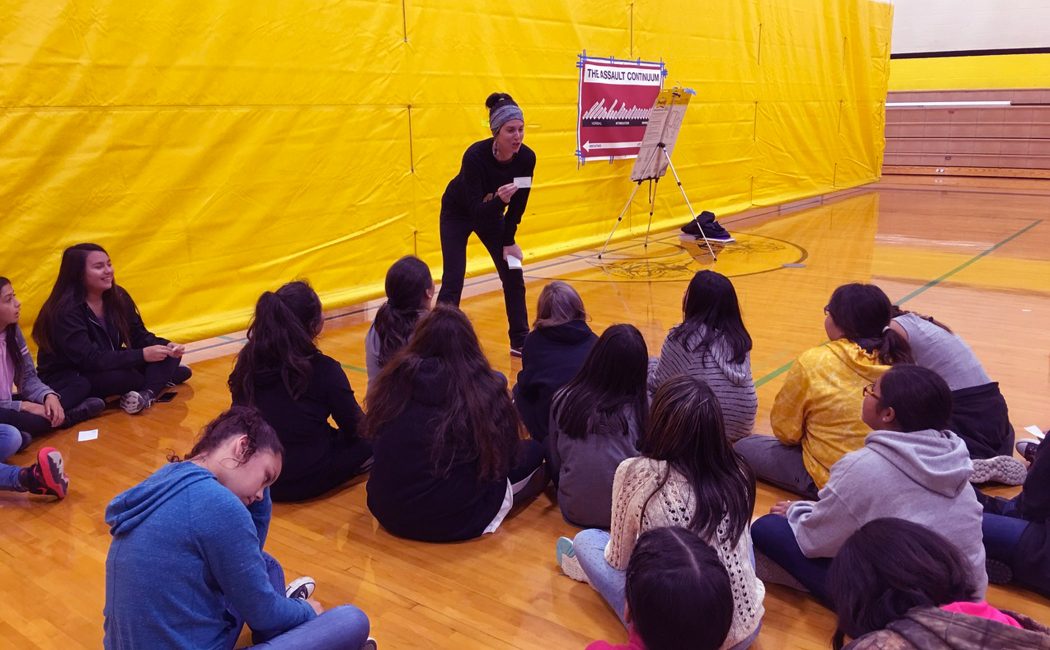
Katie Edwards, a leading researcher on interpersonal violence at the University of Nebraska–Lincoln, co-authored two recently published papers on the impacts of a sexual violence prevention program aimed at empowering Native American adolescent girls.
Edwards, associate professor, CYFS and educational psychology, collaborated with other researchers and community partners to evaluate IMpower, a self-defense empowerment program delivered to Native American girls in classroom settings. The 12-hour course included 74 participants from one middle school and two high schools on a reservation in South Dakota.

An additional 181 Native American girls in a nearby city, where no sexual assault prevention efforts were occurring in classrooms, completed surveys assessing sexual violence, physical dating violence and sexual harassment victimization. This control group’s data were compared to IMpower participant outcomes.
Researchers found that girls exposed to the IMpower program reported significant increases in their knowledge and use of effective strategies to prevent sexual assault. The team’s analyses also suggested participants reported significantly fewer types of sexual assault and sexual harassment at follow-up compared to girls in the control group.
Edwards said adolescent girls who participated in the program experienced 70% fewer instances of sexual harassment after completing the course. Participating girls also felt more confident to resist an attacker, she said, and reported having more knowledge about self-defense compared to girls who did not receive program.
“The vast majority of sexual assault prevention programs do not tend to move the needle on reducing rates of sexual assault,” Edwards said. “What was unique about this program is that it doesn’t just teach skills, but empowers girls to use the skills they are taught.”
For example, Edwards noted one girl who completed the program who said she learned she “was worth defending” — the core of the IMpower program.
Findings were published in April 2021 in the Journal of Interpersonal Violence. A second paper, published in June in the Journal of Community Psychology, evaluated the program’s implementation process.
Developed in 2009 by Lee Paiva, founder of No Means No Worldwide and IMpower United, IMpower teaches youth how to recognize risk, say “no,” use physical skills to resist a potential attack and tell others if they are being hurt. The course is taught in areas of the world where women and children are at extreme risk of sexual assault.
For participating children ages 9 and younger, the IMpower classes were mixed. But for the adolescents, classes were split between boys and girls. Trans and gender-diverse individuals were allowed to pick which class they wished to attend.
What was unique about this program is that it doesn’t just teach skills, but empowers girls to use the skills they are taught.”
— Katie Edwards, associate professor, CYFS and educational psychology
While the girls’ classes primarily emphasized recognition of risk and how to resist sexual assault, the boys’ training focused on consent, bystander intervention and challenging rape myths that have normalized sexual violence and harassment.
“It gives boys a good forum to talk about things they might not talk about anywhere else,” Paiva said.
Native American youth experience high rates of sexual abuse — a problem rooted in historical trauma, colonization, forced placement in boarding schools and other atrocities perpetrated by the federal government. The project addressed the lack of research that assessed the impact of child sexual abuse/sexual assault prevention programs aimed at protecting this vulnerable yet highly resilient population.
“When you deal with populations with high disparities of mental health, substance misuse and poverty, you find individuals with lower self-esteem,” said Leon Leader Charge, tribal training technical assistance specialist and research associate for the project. “We want to build capacity and help the community find resources that will help.”
The recent findings follow research led by Edwards while she was at the University of New Hampshire during the 2018-19 academic year. Her initial evaluation of IMpower — the first assessment of a child sexual abuse prevention program among Native American children — was published in November 2020.
Along with Edwards, Leader Charge and Paiva, other collaborators included Simone Bordeaux, health systems specialist, Indian Health Service; Ramona Herrington, cultural outreach manager, Interpersonal Violence Research Laboratory (IVRL); Skyler Hopfauf, project coordinator, IVRL; Briana Simon, research associate, IVRL; Lorey Wheeler, CYFS research associate professor; and Laura Siller, faculty affiliate, IVRL.
